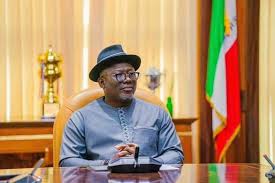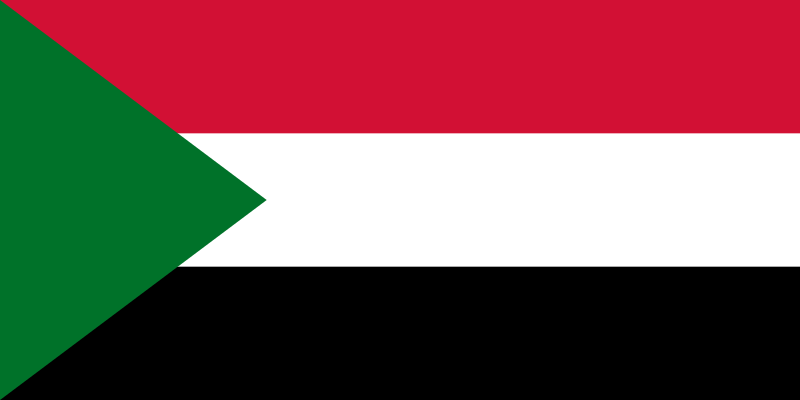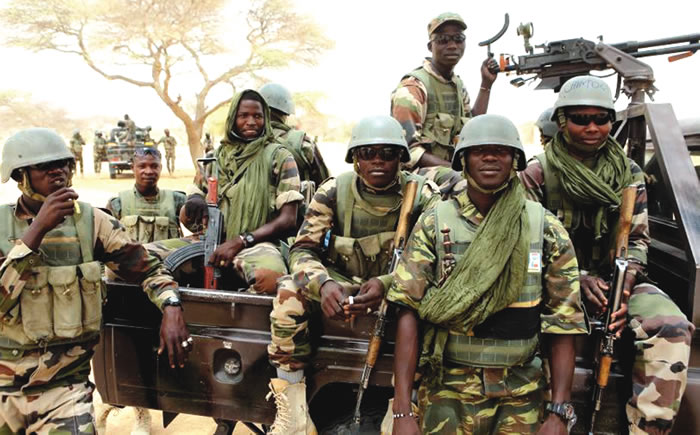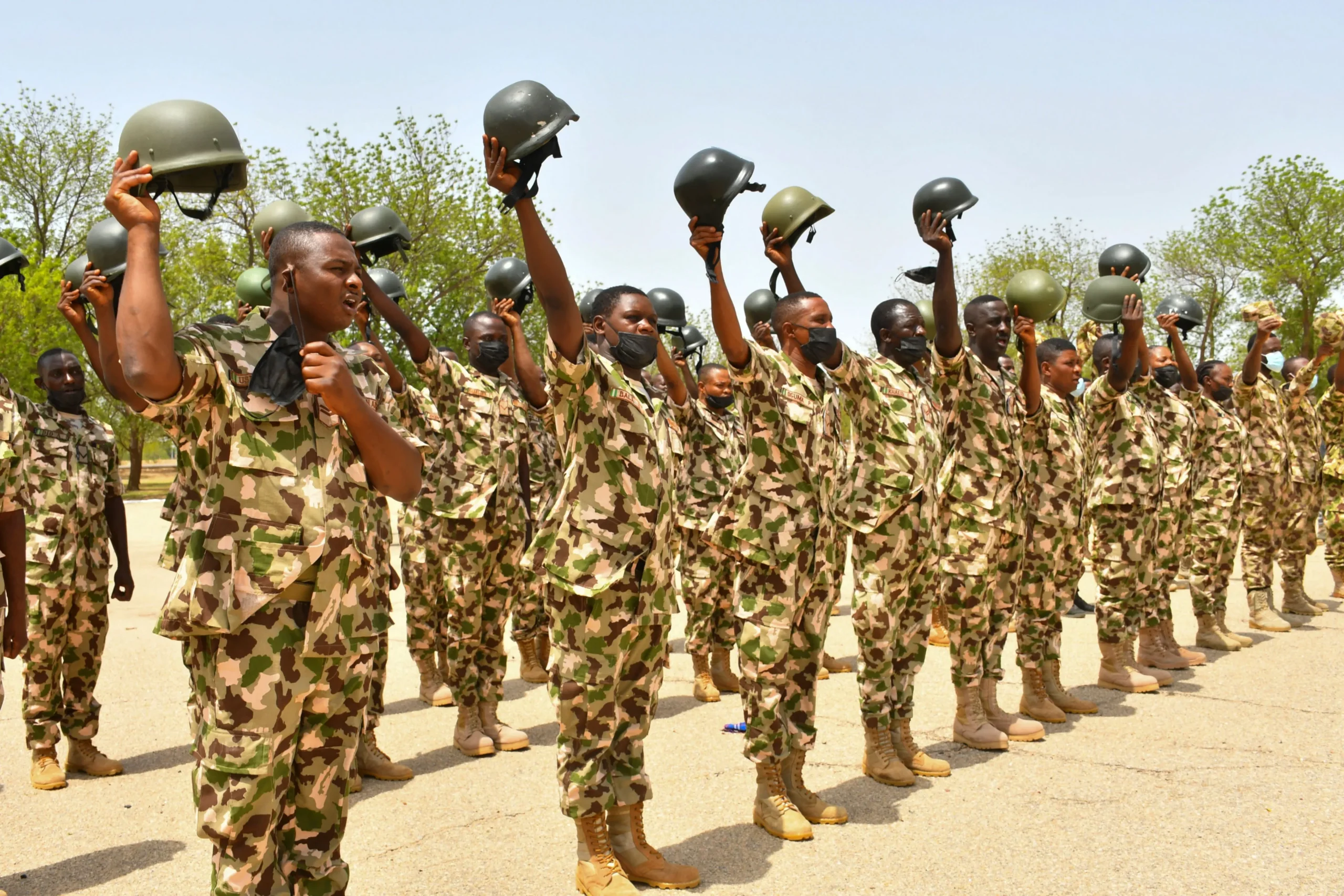Africa
Sudan’s Military dissolves government, declares the State of Emergency
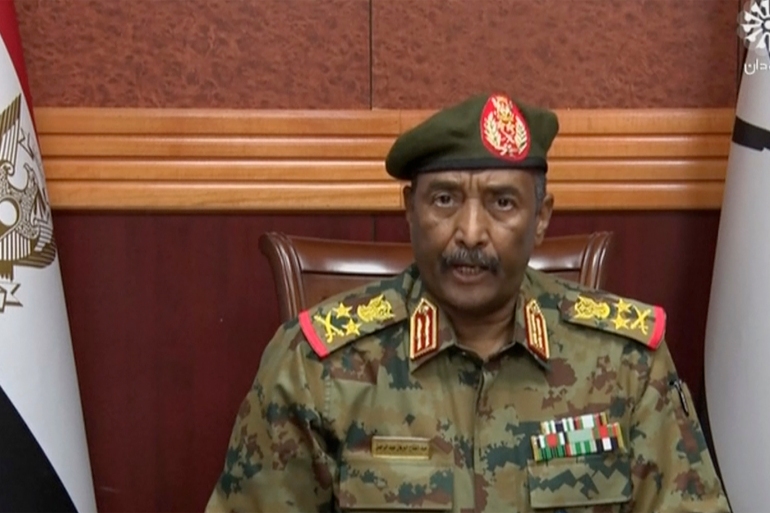
Sudan’s top general declared a state of emergency, dissolved the authorities leading the country’s democratic transition, and announced the formation of a new government after soldiers detained civilian leaders Monday in what activists denounced as a “coup”.
General Abdel Fattah al-Burhan’s announcement in a televised address came after armed forces detained figures of the government in charge of leading the transition to democracy since the April 2019 ouster of autocratic President Omar al-Bashir.
“To rectify the revolution’s course, we have decided to declare a state of emergency nationwide… dissolve the transitional sovereign council, and dissolve the cabinet,” Burhan said.
His statement came as clashes erupted in the capital Khartoum, with soldiers firing live rounds at people who took to the streets to protest against the power grab.
The violence was largely centred outside the army headquarters in the capital hours after soldiers detained Prime Minister Abdalla Hamdok, ministers in his government and civilian members of Sudan’s ruling council, the information ministry said.
They were taken away after “refusing to support the coup”, it said on Facebook.
Internet services were cut across the country around dawn and the main roads and bridges into Khartoum shut, before soldiers stormed the headquarters of Sudan’s state broadcaster in the capital’s twin city of Omdurman, the ministry said.
People took to the streets soon after, setting tyres ablaze and piling rows of bricks across roads to block them in protest against the military move, an AFP correspondent reported.
“Military forces have fired live bullets on protesters rejecting the military coup outside the army headquarters,” the information ministry said.
Around a dozen people have so far been wounded in the clashes, according to the Central Committee of Sudan Doctors, an independent medics union.
International Concern
The power grab, which comes after weeks of tensions between the military and civilian figures sharing power since Bashir’s ouster, was condemned by the international community.
The European Union called for the release of the civilian leadership and insisted “violence and bloodshed must be avoided”.
“The EU is very concerned about Sudan’s military forces reportedly putting Prime Minister Hamdok under house arrest, as well as detaining other members of the civilian leadership, and we urge for their fast release,” said European Commission spokeswoman Nabila Massrali.
America’s Special Envoy for the Horn of Africa Jeffrey Feltman said “the US is deeply alarmed at reports of a military takeover of the transitional government”.
“Any changes to the transitional government by force put at risk US assistance,” he said on Twitter.
The UN described the detentions as “unacceptable”.
“I call on the security forces to immediately release those who have been unlawfully detained or placed under house arrest,” said Volker Perthes, its special representative to Sudan.
The African Union and Arab League also expressed concern.
‘Military Coup’
The Sudanese Professionals Association, an umbrella group of trade unions that were key in leading the 2019 anti-Bashir protests, denounced what it called a “military coup” and urged demonstrators “to fiercely resist” it.
The developments come two days after a Sudanese faction calling for a transfer of power to civilian rule warned of a “creeping coup”, at a news conference that was attacked by an unidentified mob.
Bashir, who ruled Sudan with an iron fist for three decades, is behind bars in Khartoum’s high-security Kober prison.
The ex-president is wanted by the International Criminal Court over charges of genocide, war crimes and crimes against humanity in Sudan’s Darfur region.
Since August 2019, the country has been led by a civilian-military administration tasked with overseeing the transition to full civilian rule.
But the main civilian bloc — the Forces for Freedom and Change — which led the anti-Bashir protests in 2019, has splintered into two opposing factions.
“The crisis at hand is engineered — and is in the shape of a creeping coup,” mainstream FFC leader Yasser Arman told Saturday’s news conference in Khartoum.
“We renew our confidence in the government, Prime Minister Abdalla Hamdok, and reforming transitional institutions — but without dictations or imposition,” Arman added.
Sudan’s bankers’ association and doctors’ union on Monday declared campaigns of “civil disobedience”.
Protesters marched through the streets of Khartoum carrying the Sudanese flag.
“Civilian rule is the people’s choice,” and “No to military rule”, some of them chanted.
“We will not accept the military rule and we are ready to give our lives for the democratic transition in Sudan,” said demonstrator Haitham Mohamed.
“We will not leave the streets until the civilian government is back and the transition is back,” said Sawsan Bashir, another protester.
Rival Protests
Tensions between the two sides have long simmered, but divisions ratcheted up after a failed coup on September 21 this year.
Last week tens of thousands of Sudanese marched in several cities to back the full transfer of power to civilians, and to counter a rival days-long sit-in outside the presidential palace in Khartoum demanding a return to “military rule”.
Hamdok has previously described the splits in the transitional government as the “worst and most dangerous crisis” facing the transition.
On Saturday, Hamdok denied rumours he had agreed to a cabinet reshuffle, calling them “not accurate”.
The premier also “emphasised that he does not monopolise the right to decide the fate of transitional institutions.”
Also on Saturday, Feltman met jointly with Hamdok, Burhan and paramilitary commander Mohamed Hamdan Daglo.
“Feltman emphasised US support for a civilian democratic transition in accordance with the expressed wishes of Sudan’s people,” the US embassy in Khartoum said at the time.
Analysts have said the recent mass protests showed strong support for a civilian-led democracy but warned street demonstrations may have little impact on the powerful factions pushing a return to military rule.
AFP
Africa
When the Gatekeeper Fumbles: JAMB’s Error and the Future of Our Youth

When the Gatekeeper Fumbles: JAMB’s Error and the Future of Our Youth
By Matthew Eloyi
It is not every day that a public official publicly sheds tears. And so, when the Registrar of the Joint Admissions and Matriculation Board (JAMB), Professor Ishaq Oloyede, broke down while admitting to errors in the conduct of the 2025 Unified Tertiary Matriculation Examination (UTME), it was a deeply emotional moment. But make no mistake: while the tears may have reflected remorse, they cannot wash away the consequences of what is, quite frankly, a systemic failure.
Let us be clear — JAMB is not merely an examination body. It is a gatekeeper to higher education in Nigeria. It is the bridge between dreams and their realisation for millions of young Nigerians. To fumble that responsibility is not a technical error; it is a breach of trust with life-altering consequences.
With nearly 380,000 candidates now required to retake the exam due to technical glitches and irregularities, one cannot help but ask: How did we get here? And more importantly, why does this keep happening?
For years, JAMB has marketed its transition to computer-based testing as a step toward modernisation. Yet each year seems to expose new cracks in its implementation — from faulty computer systems and power outages to incomplete biometric verification and poorly configured questions. These are not unforeseeable anomalies. They are predictable outcomes of poor planning, lack of oversight, and inadequate investment in infrastructure.
Imagine the psychological toll on the students, many of whom studied day and night, only to be met with malfunctioning systems and flawed questions. Some walked out of examination halls in tears, their confidence shattered, their futures placed in limbo. For those in remote or under-resourced areas, the technical errors are compounded by infrastructural and economic disadvantages. What we are witnessing is not just an exam failure; it is an institutional failure that amplifies inequality.
JAMB’s decision to allow affected candidates a resit is necessary, but it is insufficient. What about those who may never realize they were victims of the glitch? What about those whose faith in the process has been irreparably broken?
Professor Oloyede’s tears may have been sincere, but what Nigerian students need now is not emotion — it is accountability. Heads must roll, systems must be overhauled, and the entire structure must be audited. We cannot allow a body that plays such a pivotal role in shaping the nation’s intellectual future to operate with such recklessness.
The UTME is a rite of passage for Nigerian students; it should not become a roulette of misfortune. Until JAMB can guarantee a glitch-free, fair, and standardised assessment, its credibility will remain on shaky ground.
In the end, our children deserve better. They deserve an education system that works; not one that breaks down and apologises after the damage is done.
Africa
ECOWAS Confirms Burkina Faso, Mali, Niger’s Exit, Keeps Doors Open for Return

The Economic Community of West African States (ECOWAS) has confirmed that the withdrawal of Burkina Faso, Mali, and Niger from the regional bloc takes effect from January 29, 2025.
ECOWAS spokesperson Joel Ahofodji, in a statement on Wednesday, said the decision aligns with the ECOWAS authority’s resolution and reflects the spirit of regional solidarity and the interests of the people.
Despite their exit, Ahofodji emphasized that the bloc remains open to the return of the three Sahel nations whenever they choose.
“All relevant authorities within and outside ECOWAS Member States should take note of this development,” he said.
To minimize disruptions, ECOWAS urged the continued recognition of national passports and identity cards bearing the ECOWAS logo held by citizens of Burkina Faso, Mali, and Niger until further notice.
Additionally, the commission called for the continued application of the ECOWAS Trade Liberalisation Scheme (ETLS) and investment policies for goods and services from the departing nations. It also stressed that their citizens should retain the right to visa-free movement, residence, and establishment under existing ECOWAS protocols.
Furthermore, ECOWAS requested full support and cooperation for its officials from the three countries as they continue their assignments.
“These arrangements will be in place until the full determination of the modalities of our future engagement with the three countries by the ECOWAS Authority of Heads of State and Government,” Ahofodji stated.
He revealed that ECOWAS has set up a structure to facilitate discussions on these modalities, ensuring a smooth transition.
“This message is necessary to avoid confusion and disruption in the lives and businesses of our people during this transition period,” he added.
The News Agency of Nigeria (NAN) reports that Burkina Faso, Mali, and Niger initially announced their intention to leave ECOWAS on January 29, 2024, in accordance with the bloc’s protocol, which allows for a 12-month notice period. In December 2024, ECOWAS officially acknowledged their right to exit but reiterated its willingness to welcome them back in the future.
Africa
Customs hands over illicit drugs worth N117.59m to NDLEA

The Nigeria Customs Service (NCS), Ogun Area 1 Command, has handed over illicit drugs worth N117.59 million to the National Drug Law Enforcement Agency (NDLEA).
The Comptroller of the command, Mr James Ojo, disclosed this during the handing over of the drugs to Mr Olusegun Adeyeye, the Commander of NDLEA, Idiroko Special Area Command, in Abeokuta, Ogun, on Friday.
Ojo said the customs handed over the seized cannabis and tramadol tablets to the Idiroko Special Command for further investigation in line with the standard operating procedures and inter-agency collaboration.
He said the illicit drugs were seized in various strategic locations between January and November 21, 2024, in Ogun State.
He added that the illicit drugs were abandoned at various locations, including the Abeokuta axis, the Agbawo/Igankoto area of Yewa North Local Government Area, and Imeko Afton axis.
Ojo said that the seizure of the cannabis sativa and tramaling tablets, another brand of tramadol, was made possible through credible intelligence and strategic operations of the customs personnel.
“The successful interception of these dangerous substances would not have been possible without the robust collaboration and support from our intelligence units, local informants and sister agencies.
“These landmark operations are testament to the unwavering dedication of the NCS to safeguard the health and well-being of our citizens and uphold the rule of law,” he said.
He said the seizures comprised 403 sacks and 6,504 parcels, weighing 7,217.7 kg and 362 packs of tramaling tablets of 225mg each, with a total Duty Paid Value of N117,587,405,00.
He described the height of illicit drugs smuggling in the recent time as worrisome.
This, he said, underscores the severity of drug trafficking within the borders.
“Between Oct. 13 and Nov. 12 alone, operatives intercepted a total of 1,373 parcels of cannabis sativa, weighing 1,337kg and 362 packs of tramaling tablets of 225mg each,” he said.
Ojo said the seizures had disrupted the supply chain of illicit drugs, thereby mitigating the risks those substances posed to the youth, families and communities.
He lauded the synergy between its command, security agencies and other stakeholders that led to the remarkable achievements.
Ojo also commended the Comptroller General of NCS for creating an enabling environment for the command to achieve the success.
Responding, Adeyeye, applauded the customs for achieving the feat.
Adeyeye pledged to continue to collaborate with the customs to fight against illicit trade and drug trafficking in the state.
-

 Headlines4 years ago
Headlines4 years agoFacebook, Instagram Temporarily Allow Posts on Ukraine War Calling for Violence Against Invading Russians or Putin’s Death
-

 Headlines4 years ago
Headlines4 years agoNigeria, Other West African Countries Facing Worst Food Crisis in 10 Years, Aid Groups Say
-

 Foreign4 years ago
Foreign4 years agoNew York Consulate installs machines for 10-year passport
-

 News1 year ago
News1 year agoZero Trust Architecture in a Remote World: Securing the New Normal
-

 Entertainment3 years ago
Entertainment3 years agoPhyna emerges winner of Big Brother Naija Season 7
-

 Headlines1 year ago
Headlines1 year agoNigeria Customs modernisation project to check extortion of traders
-

 Entertainment2 years ago
Entertainment2 years agoMovie download platform, Netnaija, announces closure
-

 Economy2 years ago
Economy2 years agoWe generated N30.2 bn revenue in three months – Kano NCS Comptroller




